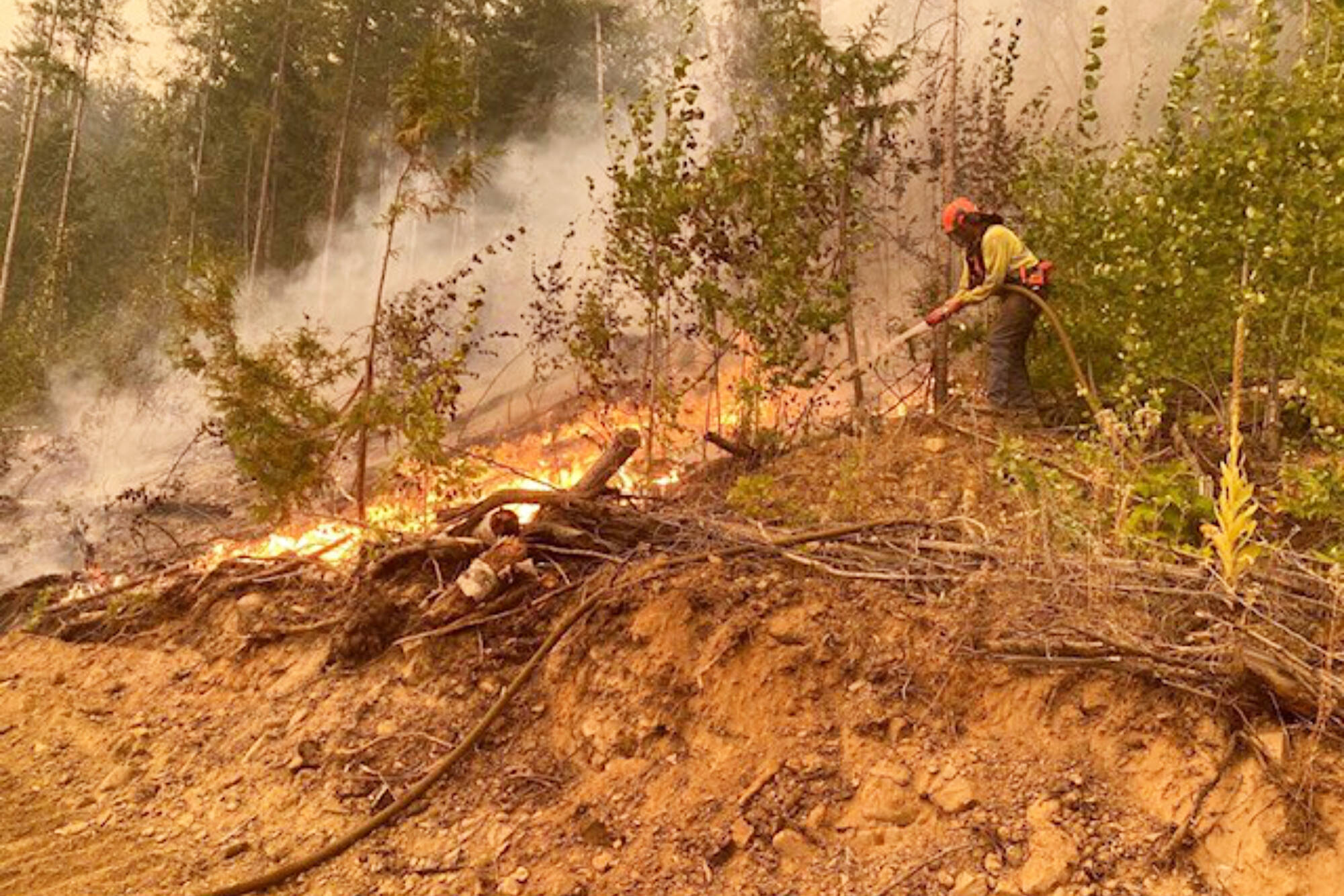Before this year’s record-breaking and devastating wildfire season, the BC Wildfire Service’s operations director says it was already beginning to explore additional response capacity.
During the latest provincial wildfire update Thursday (Aug. 31) Cliff Chapman said that BC Wildfire Service has already kicked off the Cooperative Community Response project, which is aimed at bringing on community members who are willing to take low-level or basic training to ensure safety and general firefighting tactics.
Those community members would then sign up through a local fire department or brigade, as has been seen in the Shuswap region and with the Rossmoore Lake wildfire.
Chapman said BCWS wants to continue collaborating and exploring that interest with communities as they transition into “non-response months.”
“This is something that we know we need to and want to expand. We want to work with local governments, we want to work with fire departments across B.C. as well as the general public that are willing to support response should their community see an impact from a wildfire in the future.”
Forests Minister Bruce Ralston said since 2017, the BC Wildfire Service has taken a different approach to community wildfire response.
“It is an evolving standard in the sense that each fire season brings new lessons.”
In the North Shuswap, residents rallied after their community after it was impacted by the Bush Creek East wildfire with about 25 people taking part in a two-day training last weekend.
READ MORE: North Shuswap citizens receive BCWS fire training, need garbage bins
READ MORE: Wildfire response in Shuswap fanning B.C.’s political flames
BCWS fire information officer Mike McCulley told Black Press Media Wednesday the agency doesn’t host or provide the training.
“They took this initiative to get themselves organized, get themselves trained and get themselves to try and be in a position to try and work for us,” explained McCulley who is part of the incident management team for the Adams Complex wildfires, which includes Rossmoore Lake, Lower East Adams Lake and Bush Creek East wildfires.
Asked how it felt to have community members willing to train, McCulley said it was an emotional question for him. While it’s not unique to have communities involved, what was unique was how quickly they mobilized.
McCulley said it’s an “amazing feeling of camaraderie.” He knows that BCWS crews they’re always grateful to have support within safe parameters.
“We’re hoping that the locals that are out every day on the line are not only feeling valuable because they’re helping their community, which they were doing before, but now they’re doing it side-by-side with us.”
Locals getting training to help in the wildfire fight is a “big win,” Chapman said during Monday’s wildfire update.
“What’s happening in the Shuswap I think is a great collective effort from the CSRD, the Columbia Shuswap Regional District, the local residents of that area and BC Wildfire Service really working together to try and achieve a common objective, a common outcome of protecting people’s homes and getting home sooner.”
The BCWS is also willing to learn and adapt after a year that has presented lots of challenges for the agency and British Columbians.
READ MORE: B.C. extends state of emergency by 2 weeks to due wildfires, drought
“We’re trying to actively look at opportunities to get better, to get stronger as an agency so that we can continue to grow and be ready in the face of these fires that continue to present themselves,” said Chapman.
As climate-related emergency hazards are on the rise, he said the wildfire service needs to be “willing to adjust, we need to be willing to evolve, we need to be willing to learn from the things that we’re experiencing right now.”
@laurenpcollins1
lauren.collins@blackpress.ca
Like us on Facebook and follow us on Twitter.

